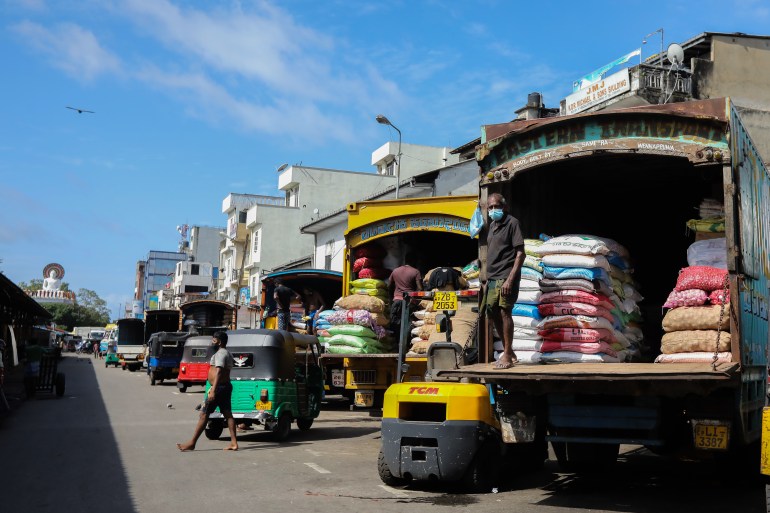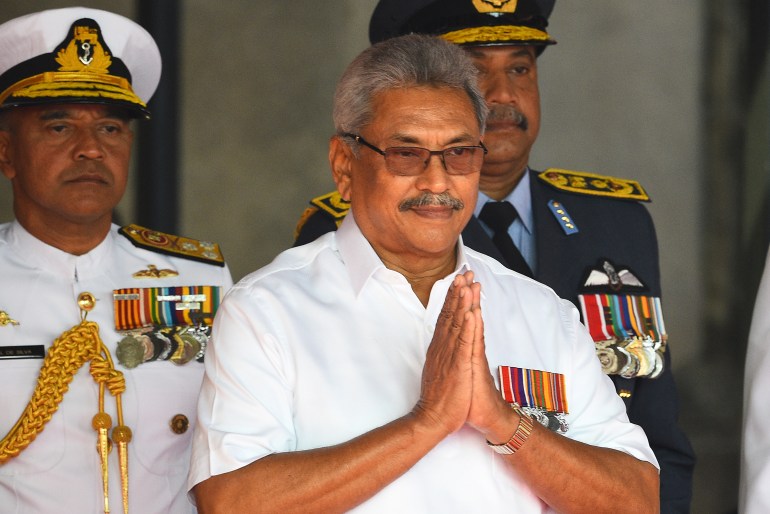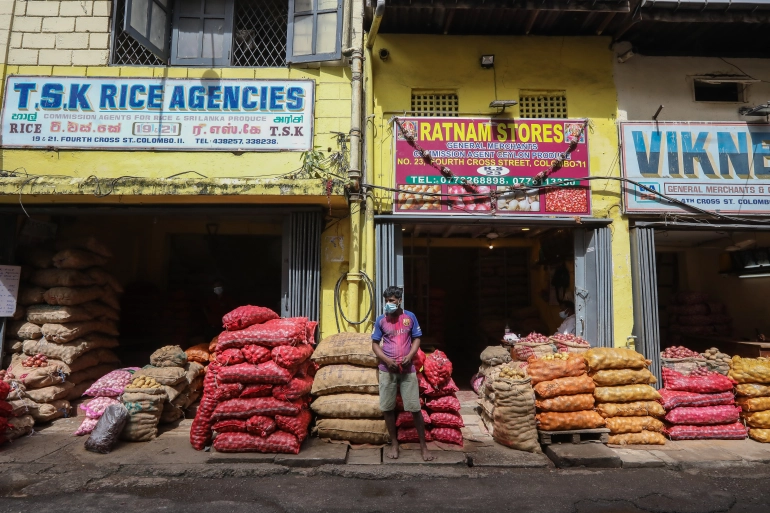(Al Jazeera) Colombo, Sri Lanka – Chandhana Silva and his family are belt-tightening in more ways than one these days.
The 45-year-old father of two works as a hotel waiter in the capital Colombo. His take-home pay is 25,000 Sri Lankan rupees ($123.2) a week, less than one-third of what he earned in the pre-pandemic days and far from what he needs to put enough food on the table as prices of staples like milk, sugar and cooking gas skyrocket in the island-nation.
“Our consumption pattern has completely changed now,” Silva, who lives in a suburb of Colombo, told Al Jazeera.
His family stretches milk further by watering it down and skips adding sugar in the morning. In the evening, they sweeten their tea but skip the milk.
Sri Lanka, which imports most essential items, including sugar and milk powder, has particularly felt the pinch. The depreciation of the Sri Lankan rupee due to inflation has further depleted the country’s foreign exchange reserves, which were already shrinking due to a drop in tourists and exports, the two key sources of US dollars.
 Critics have accused the Sri Lankan government of making the economic crisis worse [File: Chamila Karunarathne/EPA-EFE]
Critics have accused the Sri Lankan government of making the economic crisis worse [File: Chamila Karunarathne/EPA-EFE]But critics say those steps have backfired, leading to food scarcity and essential goods being sold on the black market at marked-up prices.
The devastating effect of the government’s sudden decision to stop importing chemical fertilisers and pesticides earlier this year, in an attempt to transition to organic farming, is still being felt in tea plantations and paddy fields though the ban has since been lifted.
“The scarcity of a lot of essential items is probably because of the price controls as some sellers don’t want to sell at the price-controlled amount because they are unable to make a profit,” Rehana Thowfeek, an independent economic researcher, told a forum in Colombo in late September.
While Colombo has rolled back many of those policies, the Central Bank has continued to restrict banks from issuing letters of credit to traders seeking to import food and other items, aggravating shortages.
As a result, many of the island’s 22 million residents, more than three-quarters of whom live on less than $10 a day, are eating less.
Several families Al Jazeera spoke to said that while they are spending the same amount of money on food as they did during pre-pandemic times, they now bring home much less food. Many have had to learn to live with hunger.
Not enough
Mohamed Faleel, 51, a security guard at a financial institution in Colombo, said rising food prices had stretched him thin, forcing him to take up driving an auto-rickshaw at night. The three-wheeled vehicle, ubiquitous in the island state, boosts his monthly salary of 60,000 Sri Lankan rupees ($297) by an additional 12,000 rupees ($59), but it is still not enough.
“Earlier I used to manage all with 60,000 rupees ($297),” Faleel said. “But now suddenly we need an additional 40,000 rupees ($198) to manage the basic needs.”
A kilo of fish, one of the main protein sources on the island, now costs 800-1,200 rupees ($4-6), a four-fold rise. The price of chicken has doubled since late last year, from 400 rupees to 800 rupees ($2-$4), and milk powder and cooking gas remain scarce, Faleel said.
In September, Faleel switched to a kerosene-fuelled cooker amid rising liquid petroleum gas prices, which last month soared almost by 90 percent. After kerosene started to become scarce, Faleel switched to cooking with firewood.
Faleel is also worried about being able to pay for transport, school uniforms and other expenses once schools reopen on Monday after shutting during the pandemic.
K Vijayalakshmi, 45, who earned 1,000 rupees($5) a day cleaning houses, saw her income vanish last year when the pandemic struck and the country was put in lockdown. The mother of two, who lives in a shanty in Colombo with her 82-year-old mother, said she cut her rice consumption by two-thirds after prices of the staple soared and has stopped buying milk powder and sugar altogether.
“I have lied to my kids that they contain some harmful elements … so it is better to have black tea with a small piece of jaggery. Both my sons are getting used to that,” she said.
 Sri Lankan President Gotabaya Rajapaksa has acknowledged public frustration with his leadership [File: Ishara S. Kodikara / AFP]
Sri Lankan President Gotabaya Rajapaksa has acknowledged public frustration with his leadership [File: Ishara S. Kodikara / AFP]Last month, Sri Lankan President Gotabaya Rajapaksa admitted that his government was “not delivering”.
“I accept that,” he told the troops.
Rajapaksa has come under growing pressure since his government on Monday announced the temporary closure of the country’s sole oil refinery due to a scarcity of US dollars to buy crude oil, triggering queues at petrol stations.
Thousands of people turned out in Colombo on Tuesday to attend protests led by the main opposition political party, the United People’s Force, which has blamed Rajapaksa’s leadership for the economic crisis. Rajapaksa has defended his attempted shift to organic farming as part of a “revolutionary change” expected by the public.
“We have made many changes in our lifestyle,” Faleel said. “We only have two meals on some days … My wife is also getting treatment for breast cancer. Sometimes I compromise on food for her medicine.”
